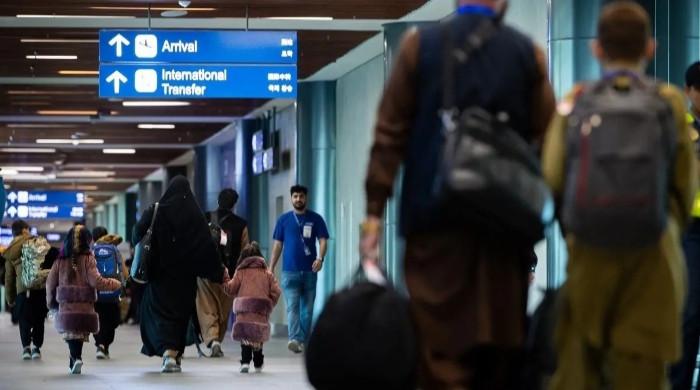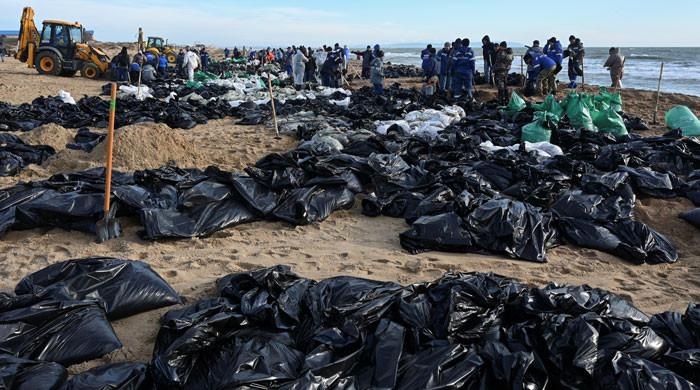Fresh bushfire threats trigger evacuation of Australian towns
A state of emergency has been declared across much of Australia's heavily populated southeast states
January 04, 2020

BATEMANS: Tens of thousands of Australians have fled their homes as more catastrophic bushfire conditions were expected Saturday, turning dozens of once-bustling southeastern tourist spots into ghost towns.
Temperatures are forecast well above 40 degrees Celsius (104 Fahrenheit) and gale-force winds are expected to fan hundreds of fires, many of which are already burning out of control across the country.
"Today is all about saving lives," said New South Wales premier Gladys Berejiklian, as authorities painted a stark picture of the day ahead.
A state of emergency has been declared across much of Australia's heavily populated southeast and more than 100,000 people have been told to leave their homes across three states.
"We've literally seen tens of thousands of people moving away," said New South Wales Rural Fire Service commissioner Shane Fitzsimmons predicting a "long" and difficult day ahead.
"Our message has been make sure you leave yesterday. Leaving it until today is cutting it fine, leaving it another half hour is cutting it finer," he said.
Thousands heeded that call Friday, abandoning summer holidays and pilling into cars that clogged the highways linking southeastern coastal towns with the relative safety of Sydney or larger towns.
'Like a refugee camp'
By Saturday an eerie calm settled over the smoke-shrouded town of Batemans Bay, where supermarkets, shops and even the corner pub were shuttered.
The only activity in the usually bustling tourist hotspot was at an evacuation centre, where hundreds of locals forced from their homes were sheltering on an open field in tents and caravans.
As one resident arrived late Friday night to register with her husband and their corgi, she quipped it was "like a refugee camp".
Mick Cummins, 57, and his wife fled to the evacuation centre when fire ripped through his rural town on New Year's Eve.
"We said this is too tough for us, let's get out. We went to the beach and then hellfire came over the hill," he told AFP.
"I was here in the '94 fires. I thought that was bad. That was just a barbeque."
The scale of Australia's unprecedented months-long bushfire crisis has shocked not just locals but the world.
Since late September, at least 20 people have died, dozens have gone missing, more than 1,300 homes have been damaged and an area roughly double the size of Belgium or Hawaii has burned.
In the small town of Mallacoota, Australia's navy was called in to evacuate around 1,000 people trapped by fire and forced to wait for days on the foreshore.
The first of two ships carrying families, pets and a few belongings arrived near Melbourne early Saturday.
Eloise Givney, 26, escaped from the blazes further up the coast with a police escort, after she and a large group of family members spent four days isolated without power, phones or internet.
"The fire came within about 50 metres of us and we drove through fire, because there's only one road in and one road out," she told AFP, adding the flames soared 15 metres high on either side of the road.
"We´ve been stuck without power for four days now. We haven´t been able to feed the kids — we've got five kids with us — and we ran out of food about a day ago."
The Bureau of Meteorology's Jonathan How said Saturday's "conditions are set to mirror or even deteriorate beyond what we saw on New Year's Eve."
"Strong, dry westerly winds will cause ongoing fires to flare up yet again threatening communities that have already experienced widespread devastation."
That front arrived in South Australia late Friday, prompting an emergency warning on Kangaroo Island, where the fire threatens to consume an entire national park and a large portion of the tourist island.











